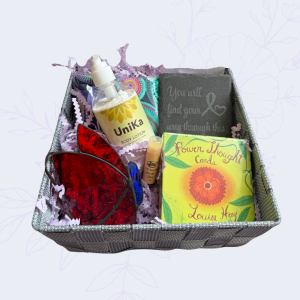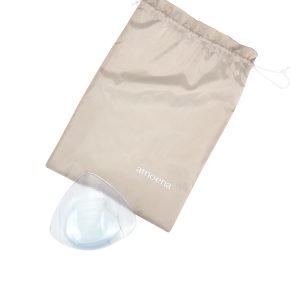Diagnosis. Surgery. Treatment. Recovery. Anniversaries. Where does it end?
You have cancer. Words I never thought I would hear. On October 5, 2012, my world changed. One day I was healthy and the next day I had cancer. Breast cancer was not in my family until that little lump turned up one summer. One in eight, that was me. That is me. Once I processed that, I was in the system – the medical system. Doctors, surgeons, plastic surgeons, chemotherapy oncologists, radiotherapy oncologists, social workers, and all the technicians who performed various scans on parts of my body. My medical team, whoever thinks they will have a medical team at 42 years old.
Mastectomy with reconstruction using an IGAP flap procedure. The interior gluteal artery perforator (IGAP) uses the tissue from the bottom of your buttocks near the crease. Yes, they use the tissue from your ass and reconstruct a breast. Most have the DIEP procedure, deep inferior epigastric perforator (DIEP) artery flap, this is when the fat and skin are removed from the lower belly. I did not have enough usable belly fat, but I had lots of gluteal tissue.
If you are not a cancer patient or have never been given the diagnosis that you have cancer, you may say well you get a boob job and a tummy tuck – how lucky. For someone who has been diagnosed with breast cancer, it is not a cosmetic procedure that you choose to have so that you have a great tummy and a slightly visible scar from hip to hip.
It is a lifesaving surgery because you have cancer cells growing in your breast. It is not a boob job; you are having your breast removed so that it does not end up killing you. These words do not come from a person diagnosed with cancer.
Once surgery is complete, depending on lymph node involvement and the pathology results, treatment may be prescribed. Treatment can involve chemotherapy, radiotherapy, a combination of both, and possibly hormone therapy or adjuvant therapy. Treatment can be very specific based on the type of breast cancer you have, hormone positive, estrogen or progesterone, or both. Her 2 positive, or triple negative cancers. Specific is good, which means it is targeted therapy. It is a lot to digest and wrap your head around. All of this takes months to go through.
Then there is recovery, once all if this is done, recovery should be smooth sailing, right? Well, not so much. There is the constant threat of recurrence that seems to stay top of mind for some time. Every ache and pain is a worry, is it cancer? I have a backache, is it in my spine? I have a headache, has it metastasized to my brain? My throat hurts, it must be in my lymph nodes. These feelings diminish, but never completely go away. Recovery is different for everyone, just because you are looking great does not mean you are doing well. The emotional and physical toll cancer takes on a person is debilitating. I have been out of treatment since 2013 and I am still in recovery.
Cancer-versary, what date do you pick if you do? Diagnosed October 5, 2012. The cancer was removed on November 14, 2012. Treatment ended on July 19, 2013. For me, it is the date the cancer was removed from my body, so November 14, 2012, is my date. This year it will be 11 years cancer-free. October is a hard month because I was diagnosed during breast cancer awareness month and there is pink everywhere. Hard to forget that month. Mostly it makes me angry because breast cancer has turned into big business. I suppose if you get past the pinkwashing, the message is good, be aware of your body and any changes. Check your breasts often.
My point here, this is your story. Every story is different because every diagnosis and treatment plan is different. How a person reacts is different, not right, or wrong, different. It is your experience, and no one can tell you how to get through it. People can say the wrong thing, like “Oh you got the good kind of cancer”, or “My aunt had cancer, but she died”. Not helpful in any way, at all. They do not mean to be hurtful or flippant, they just do not know what to say. Educate them if you can. Let them know that just listening is fine, no comment is required.
However, you will get through it. It does not have to be courageous or brave, it can just be. Just be.






What an inspirational message for all women. I’ve been lucky enough, so far, to have not hear the dreaded diagnosis. I hope that I remember your advice if someone I know needs support.
Big hugs to you.
I was recently diagnosed with Stage O breast cancer. I had a lumpectomy done on January 4th and the procedure took less than an hour. I was treated well from beginning to end. This was my first surgery ever, and I felt prepared. Here is my story:
I knew something wasn’t right when I got a phone call a week after my mammogram in early September. I was asked to have a needle biopsy done – the earliest I could get an appointment was mid October. The staff was amazing. The technician said that about 90% of biopsies done are benign. I got a phone call at the beginning of November from my doctor’s office, asking me to come in to discuss results. My doctor spent a lot of time explaining what DCIS was and that I was lucky to have it caught in time. That same afternoon, I got a call to arrange a consultation with my surgeon in mid November. My consultation took 90 minutes, and she answered all my questions as well as making my husband a part of the healing process. The challenge is waiting for the pathology results and discussing what comes next. Radiation – how many rounds? HRT?
The only people who know about my diagnosis are 4 close friends and immediate family. If people asked about the bruise on my left hand, I told them I either had day surgery or I got into a fight (depending on the person asking). Having a sense of humor helps with the journey.
I am almost 69 years old – my message is to get screened – be it a mammogram, PAP test, FOB (for colon cancer). I have not experienced any pain or discomfort post-op. I think it’s important to trust yourself – a challenge I have had for years and to ask questions. Having a support system is a good thing. it’s comforting to be told I can contact them when I need to. There are no right or wrong ways to experience this. I think it’s important to be respectful.
I found this post powerful and inspirational. I was recently diagnosed with Stage O breast cancer. There was a concern about my right breast after a mammogram in 2019. I went for another mammogram, and the results were “normal”. My 2021 mammogram was clear. I got a phone call in early September, 2023 , that there was an issue (again) regarding my right breast. This time, I went for a needle biopsy, where I was told 90% of them are benign. I got a phone call in early November, and I was told I had DCIS. I met with my surgeon 2 weeks later ( she was wonderful), and I had my surgery on January 4th, 2024. I will be having my 3 week post op meeting on January 25th.
The support from my husband and my 2 sons has been wonderful. I experienced no pain post op, and I am in good spirits.
This is my story. My suggestion is to have screenings, be it for breast cancer or cervical cancer. People respond differently. It is important to be respectful, and sometimes, not saying anything is a good response.
Hi everyone,
This is the latest follow up in my cancer journey. I needed a 2nd surgery to ensure clear margins – this was on February 20th. Fast forward to March 14th, and my margins were clear. Next step was waiting for the call from Cancer Care. I met with my oncologist on April 4th – it was going to be 16 rounds of radiation followed by endocrine treatment for the next 5 years. As of today, I have had 7 out of 16 treatments (last one on May 24th), and so far, so good (especially with the fatigue factor which is common with radiation treatments).